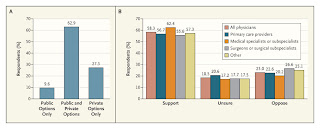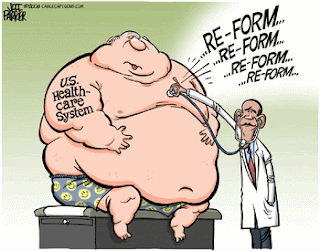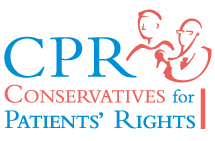
The US House and the Senate have both passed health care reform bills, and it is now up to the Conference Committee to craft a compromise bill that must then be passed by each legislative body. If a bill is ultimately signed into law by President Obama, we are likely to hear years of arguments as to whether or not this bill is a good or bad thing for our nation.
What likely will not be debated, however, is our corrupt and sclerotic political system that has produced these bills. Instead of honest debate, and collaboration about how to solve a problem, we have been treated to our representatives cynically selling their votes for this bill in order to to "buy votes back home" from local voters who continue to fall for this kind of nonsense. Want examples? Here are just a few:
Senator Ben Nelson, D-Neb., has insisted that the federal government promise to pick up the full cost of Medicaid expansion in his state, costing about $100 million over 10 years, paid for by the residents of other states. In addition, he insisted that a private, physician-owned hospital being built in Bellevue, Neb., be able to get referrals from doctors who own it, which according to new regulations will be illegal throughout the rest of the country.
Senator Christoper Dodd, D-Conn., procured $100 million dollars for construction of a hospital at a public university in his state.
Senator Patrick Leahy, D-Vt., negotiated $600 million in additional Medicaid benefits for his state over 10 years. Massachusetts is getting $500 million in Medicaid help for similar reasons, all paid for by those of us in other states.
Senator Mary Landrieu, D-La., extracted an extra $300 million in special funds for a new "Louisiana Purchase."
Senator Joe Lieberman, I-Conn.,along with most Republicans, has just taken the insurance money and tried to stop everything those lobbyists do not want.
Longshoremen union supporters of Democrats were exempted from most of a new tax on high-value health insurance plans, as were electrical linemen, police officers, firefighters, emergency first responders and workers in construction, mining, forestry, fishing and certain agriculture jobs.
As citizens can vote these people out of office any time we want, and yet we do not. We can insist on ethical behavior, but we do not. Yes, these bills are a complicated mess in many ways, although probably the best that we can do for now.
The problem is us. When we continue to re-elect corrupt, cynical politicians, who buy our votes with our own money, we get exactly what we deserve. So far, they have not been able to underestimate us.






















